Genealogy or family history has had a long and vital role in Vietnamese family life. The Vietnamese have been keeping genealogical records for centuries.
Genealogy has been essential to the Vietnamese, as it is an integrated part of Vietnam’s society, culture, family, and clan life. The Vietnamese have a long history of keeping records of their families. But even with all these genealogical records, it may be difficult for those doing genealogical research on their Vietnamese lines to find the records they need; it is challenging to discover your Vietnamese family tree.
Table of Contents
- Experiencing the Cultural Richness of a Vietnamese Funeral Procession – Video
- Tracing Roots: A Comprehensive Guide to Vietnamese Genealogy
- Gia Phả, The Family Genealogical Books.
- Record keeping of the Gia Phả, or Family Genealogical Books.
- Guarding Ancestry: The Selective Sharing of Clan Records
- Know Your Hometown to Find Your Family History.
- Understanding Vietnamese Family Names
- Interview older family or clan members who are still alive.
- Other Methods to Find Your Vietnamese Genealogy
-
Possible Organizations To Visit in Vietnam.
- Institute for Family History (Ho Chi Minh City)
- General Sciences Library (Ho Chi Minh)
- Church Records
- National Archives and Office of Foreign Affairs
- Province and Municipality and Police Stations in Vietnam.
- Vietnamese Chinese Records:
- Listen To Our Podcast About Tracing Roots Across Continents: Exploring Vietnamese Genealogy below or by clicking here.
-
Possible Organizations To Visit in Vietnam.
- 10 Compelling Reasons to Discover Your Family History
- Frequently Asked Questions
- Related Questions
Experiencing the Cultural Richness of a Vietnamese Funeral Procession – Video
Observing a Vietnamese funeral procession offers a profound insight into Vietnam’s cultural and traditional practices. The video below presents an intriguing glimpse into such a ceremony in a village outside Hanoi, in the northern part of the country.
This procession showcases the unique customs and rituals deeply embedded in Vietnamese culture, particularly in their practices surrounding mourning and honoring the deceased. The video not only captures the ceremonial aspects but also reflects the communal spirit and the deep-rooted respect for ancestors that are central to Vietnamese society.
Tracing Roots: A Comprehensive Guide to Vietnamese Genealogy
The practice of genealogy holds a significant place in Vietnamese culture, deeply entwined with the values of family and community life. Vietnamese families have meticulously maintained records for generations, chronicling their ancestry with great care.
This tradition reflects a commitment to preserving family history and underscores the broader cultural and societal importance placed on lineage and heritage in Vietnam. Despite the extensive nature of these genealogical records, individuals seeking to explore their Vietnamese genealogy often encounter challenges.
Navigating the complexities of these historical archives to construct a comprehensive family tree can be a demanding yet rewarding journey for those keen on connecting with their Vietnamese roots.
Here is some information to help you with your Vietnamese genealogical research:
Gia Phả, The Family Genealogical Books.
The Gia Phả, translated into Vietnamese as the Family or Clan books, is at the center of most Family History research in Vietnam. When you look at the history of Vietnam, it is fantastic to know that many of these books still exist today.
If you are interested in Vietnam’s history, the blogs below will give you an overview so you can better understand Vietnam and Vietnamese genealogical research.
- A Brief History of Vietnam. What You Should Know – This blog will give you an overview of Vietnam until 1975. You can read the blog by clicking here.
- Vietnam After the War. What You Need to Know – This blog will give you a historical overview of Vietnam from 1975 until the present day. You can read it by clicking here.
The Vietnamese family books are very much a part of the Confucian teaching in Vietnam. Families have kept many records for 22 or 24 generations or longer. But one of the problems in doing Vietnamese genealogy is that the books are in the hands of the individual family clan patriarchs and not in many government or other depositories.
And though there is no data to support this theory, from what I have seen, more of the northern families seem to have more of these family books than many of the southern families. Of course, this is on a case-by-case basis, so even if your family is from the south, they may still have a family book somewhere.
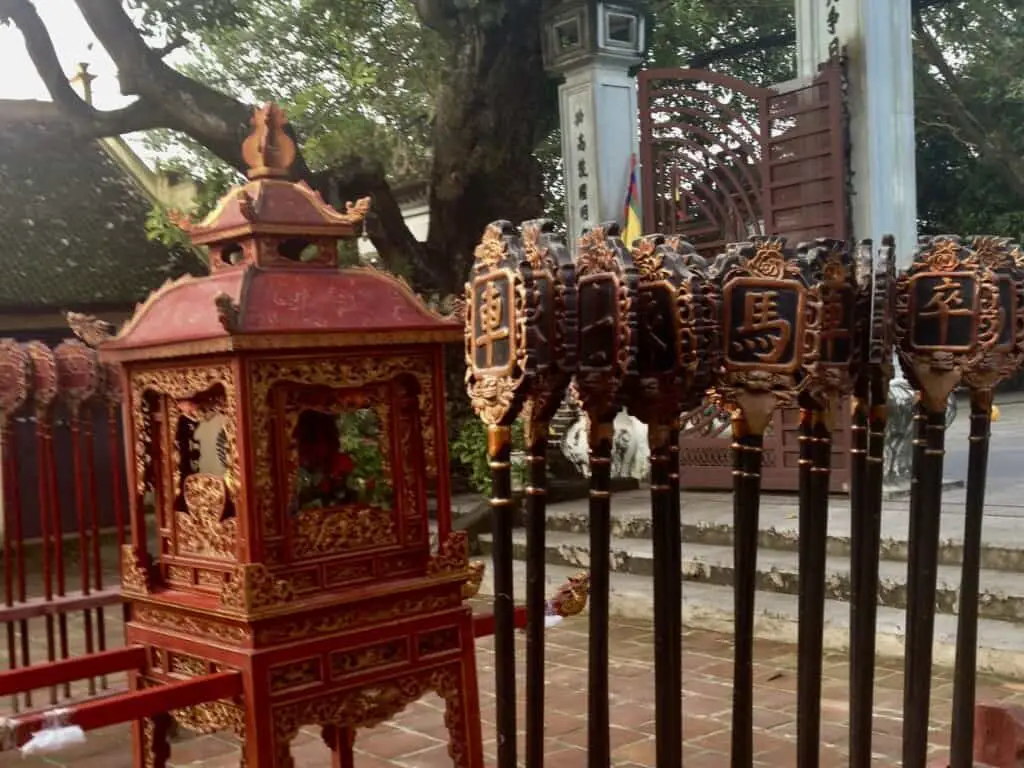
Today, some groups see these books’ cultural value and seek ways to preserve them and their contents. However, many families do not want to show or give up access to a record that they consider to be part of the family’s heritage and culture.
The Vietnamese Family Books are part of Vietnam’s Confucian teachings.
Family books were part of the Confucian teaching in Vietnam. Bui Huy Bich (1744-1818) was from Hanoi and was in the Royal Court of King Le Trinh. and he instructed the Vietnamese to keep their family’s genealogy. He said:
“Scholars should amend the family genealogy once every generation.”
bui Huy Bich
As part of their Confucianist teachings, Vietnamese families were instructed to keep their families genealogical records, which they kept in the form of a family or clan book.
Many Vietnamese Family Books Are In The Chử Nôm Script
Many kept these records in the ancient Vietnamese script of Chử Nôm. Very few people in Vietnam today can read the old Chử Nôm script.
Chử Nôm looks like traditional Chinese characters, and some characters may be the same. It is not 100% the same as the traditional Chinese. Chử Nôm can best be described as Chinese characters but with Vietnamese characteristics and Vietnamese grammar.
Many families have already translated their family books into the present-day Vietnamese script. Others have even professionally printed the information in a book form to give to all the clan members. But if you have a family book that is in Chử Nôm script, you will need to contact some of the Chử Nôm scholars to help you with the translations.
There is a foundation called the Nom Foundations. Their primary purpose is to help to preserve the Vietnamese Chử Nôm script. You can contact them and find out more about the Nom Foundation and visit their website by clicking here.
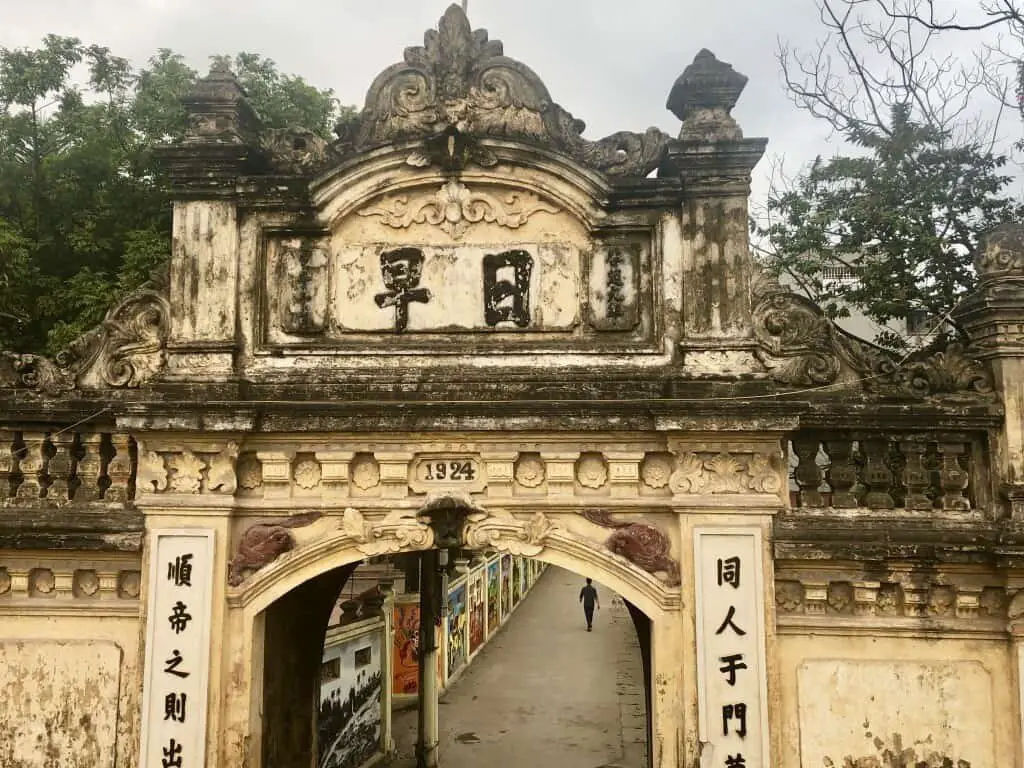
Most Vietnamese Families Have a Designated Relative
Common in most Vietnamese genealogies is the family and clan members appointed a designated ancestor. The family genealogy starts from one ancestor and works forward to the present day. This is the opposite of how most genealogies work in the West, starting with the present-day person and working back towards our ancestors.
This is one reason why many of these family books will include thousands of ancestor names and can go back 22 to 24 generations in some cases. It will give the names and information of distant cousins, aunts and uncles, and other ancestors.
As Vietnam is patriarchal, the male line passes the books down in the clans. A family patriarch would be in charge of the book until it is time to pass it down to the next generation. The person in charge of the book is instructed to keep the book safe.
Record keeping of the Gia Phả, or Family Genealogical Books.
The ancient scholars did not give a straightforward format of how a family book should be recorded, so some family books provide a lot of information, and others give some fundamental knowledge.
Here are some aspects of Vietnamese family books:
- Compilation of Family books: The genealogy was compiled in the books to record information such as ancestor’s names, important dates, and where they are from (to ensure they are really Vietnamese).
- Preface: Most of the genealogies have some preface to them.
- Specific instructions to descendants: Some families used the family books to give their descendants specific instructions to uphold the family’s customs and do all they can to honor their deceased ancestors.
- Designated Relative – The books will have a relative that is called the designated relative. The designated relative is the relative that has been decided that the family will choose as their main relative so that the family history will go forward from that designated relative.
Compared to Western genealogy, which starts with the individual and works back, Vietnamese genealogy will start with a designated relative and work forward to the present day. For this reason, Vietnamese genealogy can also include a lot of names for 14th, 15th, or 16th cousins and others.
On the death anniversary of their ancestors, the family patriarch may take out the family book and read its contents to the entire family. If the family had a prominent ancestor, this would be a source of pride for the entire family.
Contents listed in many family books.
The content of the family books can include a variety of information, but some of the information it can consist of are:
- Each ancestor’s name
- Date of birth and death of the ancestor
- The burial location of the ancestor
- The life story of the ancestor
- The marital status and who they were married to
- How many children do they have?
- The different times when they moved to a new location, so their ancestors will know.
Some family books, especially those of noble heritage, may have all this information. Other family books may have part of the information in the book. And others still may have just fundamental information. In keeping with the patriarchal Confucianism traditions of the male ancestors being the most essential descendant, some families may only have recorded the male ancestors without any female names, including spouses.
Vietnam has gone through many wars throughout its history. Despite all these wars, the Gia Phả, or Family Genealogy Book, has remained important to the Vietnamese Family. It is a record of the Vietnamese family clan and is a cultural-historical record.
Like in any other family, some of the family record keepers will be better than others as there is no universal standard for the record-keeping of these family books in Vietnam.
Guarding Ancestry: The Selective Sharing of Clan Records
Some clans will keep the books secret or only show them to certain family members.
Not all family books are easy to access, even if you are a relative. Here are some common reasons I have heard:
- Only certain ancestors can access the book – Some families may have stringent rules regarding who can access the books. This could include only certain male members of the family.
- Only male ancestors can access the book. Some families have stringent Confucian ideals and believe only male ancestors can view the information in family books. I have heard this complaint a few times from women trying to get access to their family books but being refused to view them by the family male patriarch.
- The family has a secret and does not want anyone to see the book. Some families may have a secret or an ancestor who has shamed their good name because of this and the perceived threat to the family’s good name; they may not want anyone to see the book.
Know Your Hometown to Find Your Family History.
Many Vietnamese may mention their hometown. But what is interesting is that even if they call this their hometown, it does not mean they have ever lived there. For them, the hometown can mean where their ancestors or family originated.
This may not even be the place where their parents live. But it is where their family graves are and their relatives (even distant relatives) are from. Usually, the family books are kept close by or in this hometown.
To know your family’s hometown, you need to have some background about your family. It can get tricky if you have no idea where your family is from.
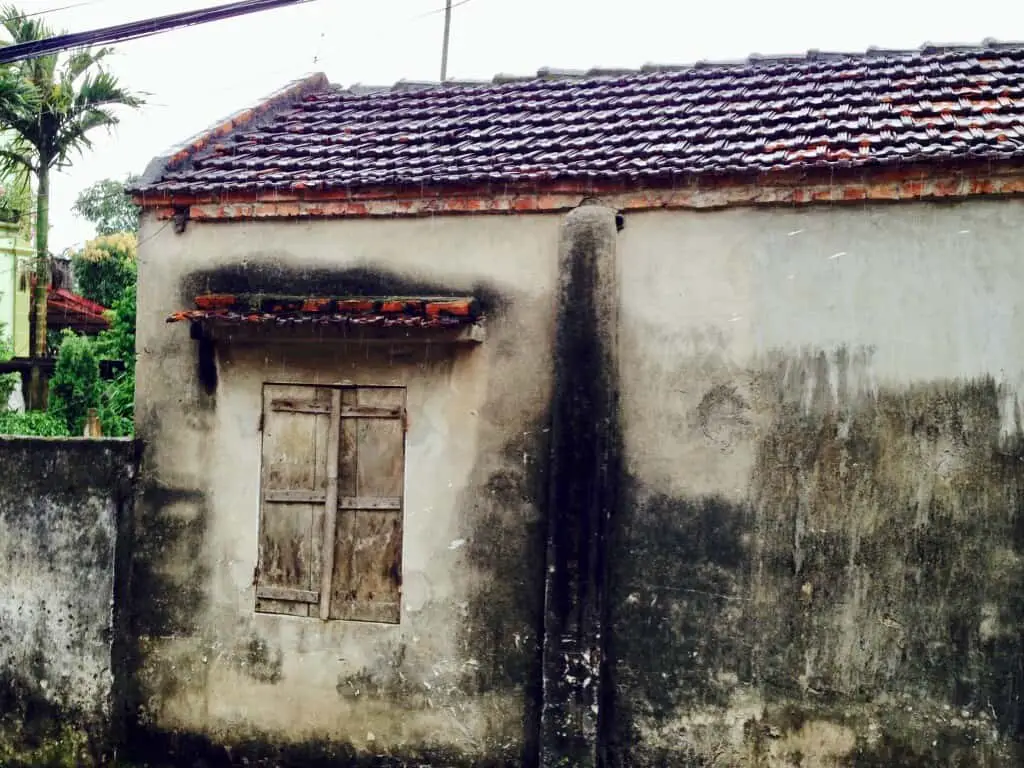
Understanding Vietnamese Family Names
To know if they have your family clan’s book, you will need some basic family information about where your ancestors are from, such as their hometowns or where they lived. Most Vietnamese use the following family names:
- Nguyễn – Almost 40% of all Vietnamese have the last name Nguyễn. If you have this last name, you must be very clear about where your family is from for you to do your genealogical research. With so many Vietnamese with this last name, it will be easy to confuse areas, hometowns, and your ancestors.
- Trần or Tran – about 11% of the Vietnamese population has this name. Like the Nguyễn last name, the Trần or Tran last name can easily confuse your ancestors as many use this family name.
- Lê – This third most common Vietnamese name is used by about 9.5% of the Vietnamese population.
- Phạm is the 4th most common name, with 7.1% of the population using this name.
- Hoàng/Huỳnh – About 5.1% of Vietnamese people have this last name.
- Vũ – About 3.9% of the Vietnamese population uses this name.
- Đặng – About 2.1% of the Vietnamese population uses this name.
- Bùi – This name is used by 2% of the Vietnamese population.
- Đỗ – About 1.4% of the Vietnamese population uses this name.
- Hồ – About 1.3% of the Vietnamese population uses this name.
- Ngô – This name is used by 1.3% of the Vietnamese population.
- Dương – About 1% of the Vietnamese population uses this name
- Lý – This name is about 0.5% of the Vietnamese people.

As you can see from the above pie chart, most of the chart shows the Nguyễn Vietnamese family name as the most common name used. You can also see how few last names are used in Vietnam. This can make doing your genealogy complicated as it can be easy to confuse who your ancestors are.
Interview older family or clan members who are still alive.
One of your best sources of family information in Vietnam is usually older family members who are still alive. Start with talking to some older relatives you may know and ask them if they know your hometown if you have a family book, and if there are any family names or dates that can help you search.
Knowing your ancestors is very important to most Vietnamese. Because of this, most older Vietnamese will have some idea of who many of their ancestors are or where the family originally came from.
Today in Vietnam, most homes will have a family altar with some relatives’ photos, usually their parents, grandparents, or other relatives who have died. This altar is often a central and essential part of their home so their ancestors are not forgotten.
Also, you see many graves out in the rice paddies. These are usually family graves of their ancestors, and most of the graves I have seen are very well-kept and taken care of. This is especially true if the family members are still living nearby.
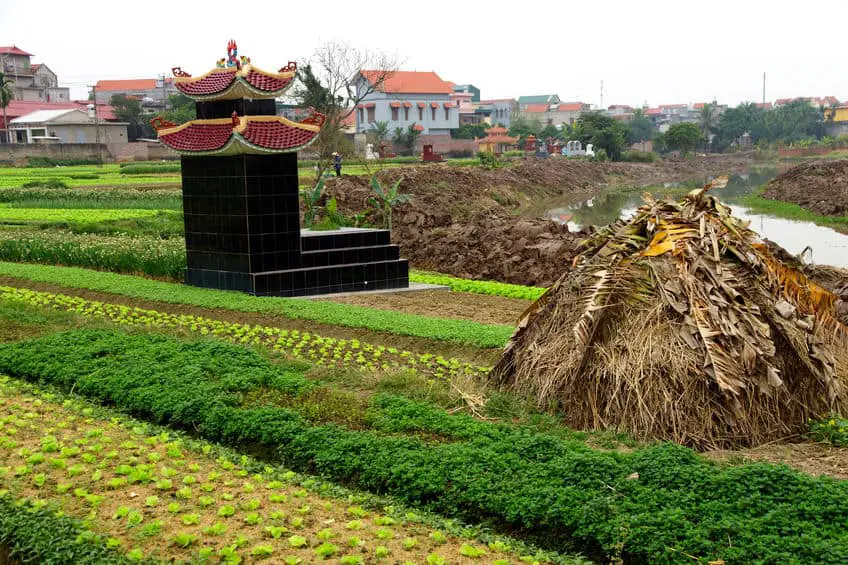
Because so many Vietnamese have such similar names, one of the most important things you can do is to try to get some records and information from the oldest members of your family that you know.
This is because many families keep their family records within the Vietnamese family or clan. Many of the books have gotten lost or destroyed over the years, or some families could not keep up with their family records; talking to your oldest living member of the family can help you verify a lot of information.
Interview Oldest Living Relatives First
Interview the oldest living relative of your family, even if this person is now living overseas. They may have some memories of things like:
- Your Hometown – They may know where your family’s hometown is and if any relatives live there.
- Family book – They may know if you have a family book and who has it.
- Names, Dates, and Place – They may have names, dates, places, and many of your ancestors.
- Family Grave – They may know or remember where your family grave is.
- Designated Relative – Most families have a designated relative. Some of your older relatives may know the name and other information on this designated relative and even some family stories passed down.
- Neighbors or Others With Information – Many families have lived in the same village or area for hundreds of years in many places in Vietnam. This oldest living relative may have some memories of this area or know more about where you can find your hometown. It is usually in these areas where your family has lived for a long time to locate your family’s information. They may even know of neighbors or others in the area you can talk to to get more information.
For some ideas and suggestions on interviewing your family members, you can read the blog and watch the video by FamilySearch called Interviewing Your Living Relatives—5 Minute Genealogy by clicking here.
Other Methods to Find Your Vietnamese Genealogy
Finding your hometown and family book will be one of the best ways to discover your Vietnamese genealogy. But what if you cannot find your family book? What should you do then?
There is not much Vietnamese genealogy online on the typical genealogy research websites. One reason is that Vietnamese records have not yet been photographed. or put it online. This, of course, could eventually change.
But before these changes, one of the best options for you to do your Vietnamese genealogy is to do your homework and then plan a trip to Vietnam to check out some of the records. I have met several people who did this and found records and family books they never expected to find.
Possible Organizations To Visit in Vietnam.
The organizations below both have some family books in their collections. As the records are yet digitalized, you must visit them to see if they have any of your family records in their collection.
Institute for Family History (Ho Chi Minh City)
An Institute for Family History Research in Ho Chi Minh City is located at 275B Pham Ngu Lao Street, District 1. The Institute was established to help facilitate and preserve Family History records in Vietnam. Presently, the institute has over 200 Vietnamese family history clan books.
The Institute of Family History aims to help family clans compile and publish a new Gia Pha or family book. You can ask them if they have specific information on your family or clan.
General Sciences Library (Ho Chi Minh)
The General Sciences Library in Ho Chi Minh is located at 69 Lý Tự Trọng, Phường Bến Thành, Quận 1, Hồ Chí Minh. The General Sciences Library in Ho Chi Minh has over 2,000 Gia Pha or family books in its collection. This would be an excellent place to see if your family book is in their collections. You can learn more about the General Sciences Library by visiting their website and clicking here.
Church Records
Christianity first came to Vietnam in the 16th and 17th centuries. Dominican missionaries arrived on the shores of Vietnam in 1516, and the records show they had quite a bit of success here.
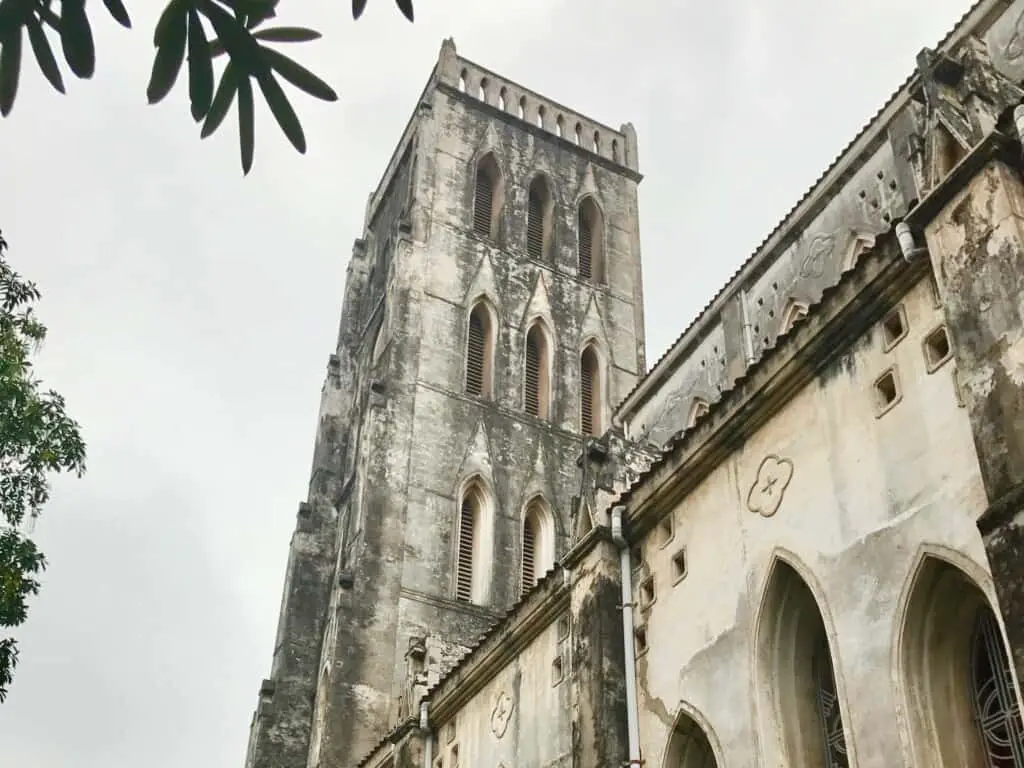
Until these records are photographed or put online, you must go to the individual church locale to find the genealogy records. You may be able to find the church records from the following years:
- Catholics from about 1582- to the present.
- Lutheran and Reformed Lutheran from about 1900 to the present.
- Methodist from about 1915-present.
- Presbyterian from 1925 to the present.
If you can find the church records as your family was Christian, then many of the church records will include:
- Baptismal records could include baptism dates, including a child’s name and the parent’s residence and names. In some circumstances, the mother’s maiden name is given. Also included could be the witnesses’ names and the names of the godparents. Sometimes, their residence and relationship to infants are listed so that they may find the grandparents’ names and residences.
- Marriage records: The names of the couple and the date of their marriage. These records will sometimes include the birthplace, residence, witnesses, former spouses (if relevant), and their parent’s names.
- Death/burial records: The name of the deceased and the burial date of the deceased. The age, cause of death, and residence can often be listed, along with the spouse’s name. For decreased children, the records should also list the parent’s name.
- Confirmation records: These records will have the name of the person being confirmed, their age, residence, and also sometimes some of their parents’ names. Usually, this will be the father’s name.
Most Vietnamese researchers will not use the church records as this affects only about 7% of the Vietnamese population. But if your ancestors were Christian, especially for a long time, this would be an option for you to find their records. There are entire villages with a catholic parish, and most, if not all, the village is Christian. These records can be found at individual churches or parishes, and some at the National Archives.
National Archives and Office of Foreign Affairs
Three National Archives in Vietnam and the Office of Foreign Affairs could have some records. But there is no set system to access the documents and why they can be accessed. This is really on a case-by-case basis.
However, getting access to the records may not be easy as you will need a reader card to access the information. To obtain a reader card as a foreigner, you must show your passport, visa, and a letter from a sponsoring institution.
As a local Vietnamese, it should be much easier to obtain. This card will not be issued immediately, but it could take up to a few weeks for you to receive it.
Here is the information from the National Archives and the Office of Foreign Affairs:
- Office of Vietnamese Ministry of Foreign Affairs: No. 1 Ton That Dam, Ba Dinh, Ha Noi, The Office of Ministry of Foreign Affairs has the more current (present-day) records in Vietnam.
- National Archives Center I: 18 Vu Phan Ham, Phuong Yen Hoa, Cau Giay, Ha Noi. – This National Archive Center I have recorded from the French Colonial period of Vietnam.
- National Archives II: 2 Le Duan, District 1, Ho Chi Minh City. This is National Archives II is in Ho Chi Minh and houses the Republic of Vietnam records.
- National Archives III: 34 Phan Ke Binh, Ba Dinh District, Ha Noi. This National Archives III houses the records from 1945 onward for the Democratic Republic of Vietnam.
Province and Municipality and Police Stations in Vietnam.
The province and municipality offices and police stations in Vietnam also have some family history records. Vietnamese who served in the armed forces, especially those in the north, would have had to write down their four generations of genealogy.
The records of who is residing or has resided in an area are at the police stations. There are several types of police stations in Vietnam:
- Công an Phường – Local Police Station
- Công an Quận – District Police Station
- Công an thành phố. – City Police Station
The local police usually have family records and knowledge of the families in their areas. Even today, they would know about the families in the areas they serve. Depending on how long they have been there or how well they know the residents in their area, they may know the individual family’s history.
In every police department, every family has a registration book called the hộ khẩu. This book has information on the family. If your ancestors lived in an area for a long time, even if they have since passed on, there could still be records of them at the police station and in their hộ khẩu.
The local police may know of your family or may know other family members, former neighbors, or other people you can speak to for more information.
If you know the area your relatives lived in but do no know your hometown, this could be a good place to start to see if you can talk to any of the long-time residents there.
Many long-time residents or even the police would know much about what has happened in their area over the years. This local kind of knowledge could be invaluable in helping you find your Vietnamese ancestors.
Vietnamese cities and city municipalities are divided into:
- District level – (quận)
- Ward level – (phường)
Each Vietnam province is divided into different provincial municipalities (thành phố trực thuộc tỉnh). The other divisions are:
- Township level (thị xã)
- Counties (huyện)
- Towns (thị trấn)
- Communes (xã)
There could be some records at all levels, so if you do not have any luck with the local level or are unsure where to start, you can also try some of the offices at the other levels to see if they can help you.
But gaining access to any of these records or any information can depend on who you are talking to and if they agree or do not agree to allow you access. That is why, when going to these offices, it may be helpful if you speak Vietnamese.
If you are a foreigner, even an overseas Vietnamese, bringing a local Vietnamese relative may help you deal with the local authorities. If you do not have any living relatives, try to bring another community member whom the police and authorities may personally know.
Vietnamese Chinese Records:
If your ancestors lived in a predominately Chinese area of Vietnam like Ho Chi Minh’s famous Chinatown or Chợ Lớn. You can try to talk to some local Chinese associations and see if they have any records.
These records will only help about 5% of the Vietnamese population, and you would need to know your ancestors were Chinese living in Vietnam. These records are usually quite good; some can return to the 1800s.
There are also several temples, mosques, and monuments in Cho Lon. You can also try to contact them to see if they have any history or information for you. Some of the notable ones are:
- Quan Âm Pagoda, Ho Chi Minh City (觀音寺)
- Thiên Hậu Temple, Ho Chi Minh City
- Cho Lon Mosque
- Nhị Phủ Temple (二府廟)
- Hà Chương (Hokkien) Guildhall
- Miếu Quan Đế (關帝廟)
- Minh Hương Guildhall (明鄉嘉盛會館)
- Tam Sơn Guildhall (三山會館)
Doing your Vietnamese genealogy has a lot of challenges because most genealogical records are not online. To do your Vietnamese genealogy, you need to know your family and know a bit about your ancestors.
But on the other hand, Vietnam has these excellent family book records. So if you find your family book, you may find records that will go back centuries and find things about your ancestors you did not know.
Listen To Our Podcast About Tracing Roots Across Continents: Exploring Vietnamese Genealogy below or by clicking here.
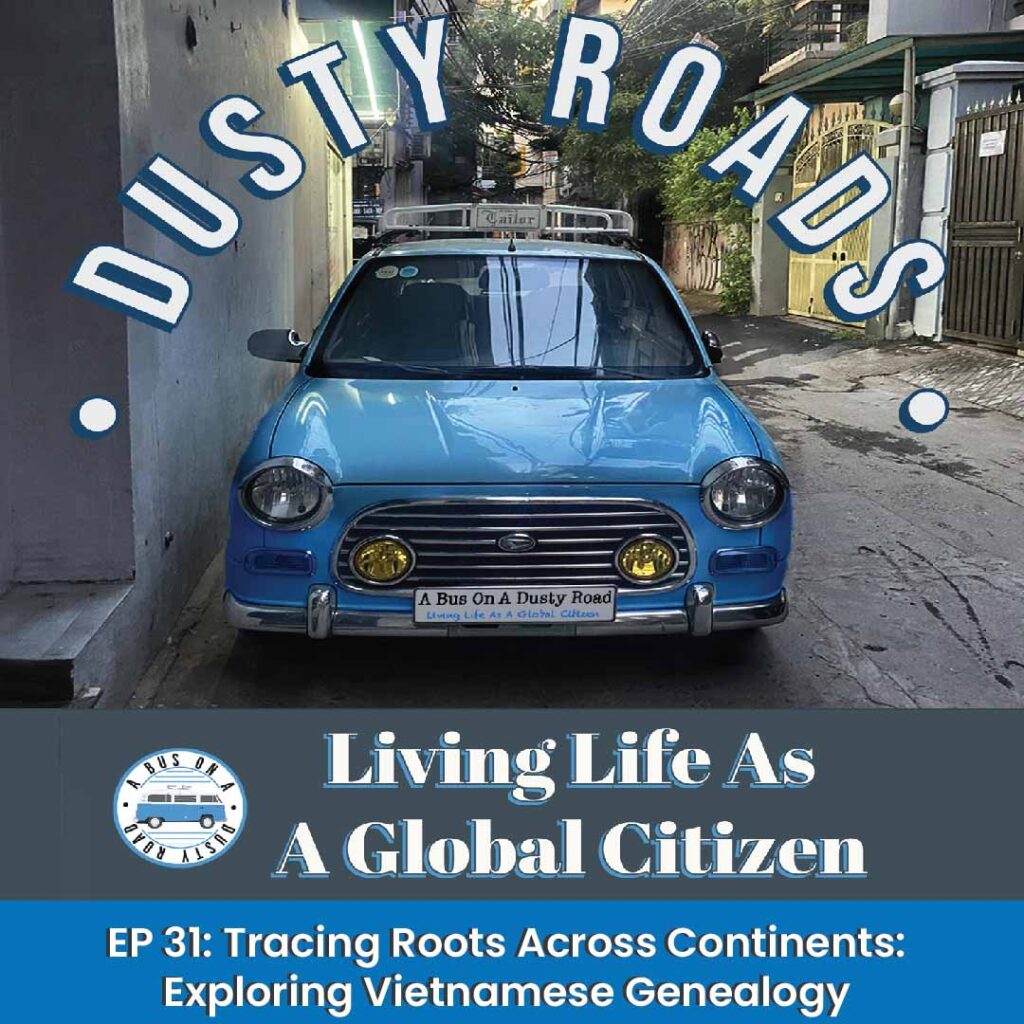
10 Compelling Reasons to Discover Your Family History
Exploring one’s family history is akin to piecing together a living jigsaw puzzle that spans generations and continents. The quest to understand where we come from and the lineage we belong to can be profoundly enlightening.
Here are ten compelling reasons why everyone should delve into their family history:
- Learn About Yourself: Unearthing your family’s past often reveals facets of your own identity. Recognizing traits, talents, or even physical resemblances can provide insights into your own persona.
- Connect with Your Family: As you delve deeper into your lineage, you’ll discover stories, experiences, and legacies of family members, making you feel more connected to your clan, both past and present.
- Understand Your Roots: Gaining knowledge about your ancestors, their places of origin, and their life journeys can provide a clearer understanding of where you come from, grounding you in a sense of belonging.
- Preserve Stories for Future Generations: Family history is rich with tales of adversity, triumph, love, and loss. Documenting these ensures that future generations can learn and draw inspiration from them.
- Appreciate Your Cultural Heritage: Family histories often encompass diverse cultures, traditions, and customs. Understanding these can instill a sense of pride and appreciation for your cultural heritage.
- Identify Genetic Predispositions: While primarily a journey of historical and emotional discovery, researching family history can sometimes shed light on hereditary health conditions or traits.
- Foster Family Bonds: Sharing and discussing family history can strengthen familial ties. It provides a shared narrative that can be a foundation for building closer relationships.
- Develop Research Skills: The process of uncovering your family’s past hones your research skills. Sifting through records, interpreting documents, and corroborating stories can be challenging and intellectually stimulating.
- Gain Historical Context: Personal family stories set against the backdrop of historical events can provide a unique perspective on world history. Understanding the challenges your ancestors faced during significant historical periods can be enlightening.
- Celebrate Life and Legacy: At its core, family history is a celebration of life. It’s a recognition of the journeys, challenges, joys, and legacies of those who came before us, and a nod to the heritage we’ll leave for those who come after.
Discovering your family history isn’t just about names and dates; it’s about understanding the tapestry of experiences, decisions, and events that have culminated in your own existence. It’s a deeply personal journey, one that can offer both clarity and connection.
If you’re seeking efficient ways to navigate Vietnam, we suggest referring to the Book a Way website. This platform offers valuable insights and clear guidance on traveling between various locations within the country. To learn more about their services, click on the link provided below.
At A Bus On A Dusty Road, we talk about travel, life, and ex-pat living. We are all about “Living Life As A Global Citizen.” We explore social, cultural, and economic issues and travel.
We would love to have you be part of our community. Sign up for our newsletter to keep up-to-date by clicking here. If you have any questions, you can contact me, Anita, by clicking here.
Listen to our Podcast called Dusty Roads. You can find it on all major podcast platforms. Try out listening to one of our podcasts by clicking here.
Subscribe to our A Bus On A Dusty Road YouTube Channel with great videos and information by clicking here.
Frequently Asked Questions
Why is genealogy important to the Vietnamese?
Genealogy is important to the Vietnamese because it is an integrated part of their society, culture, family, and clan life. It helps them understand their family history, ancestry, and connections to their roots.
How long have the Vietnamese been keeping genealogical records?
The Vietnamese have a long history of keeping genealogical records, dating back many centuries. These records have been passed down through generations, preserving valuable information about family lineages.
What challenges do people face when researching their Vietnamese family tree?
Despite the existence of genealogical records in Vietnam, it can be challenging for individuals to find the specific records they need. Factors like incomplete records, language barriers, and limited access to certain archives or resources can pose difficulties.
How can I begin my genealogical research on my Vietnamese lines?
To start your genealogical research on Vietnamese lines, gather as much information as possible from family members. Utilize online resources, such as ancestry databases, genealogy forums, and Vietnamese genealogy societies or organizations that may provide guidance and support.
Are there any specific tips for conducting genealogical research in Vietnam?
When researching Vietnamese genealogy, it can be helpful to learn about the local customs, naming practices, and historical events that may have affected record-keeping. Consulting with local experts or genealogists who specialize in Vietnamese genealogy can provide valuable insights.
Are there any online resources or databases specifically for Vietnamese genealogy?
While there may not be dedicated online resources exclusively for Vietnamese genealogy, websites like Ancestry.com, FamilySearch.org, and MyHeritage.com offer global genealogical databases that can be utilized in researching Vietnamese family lines.
How can I overcome language barriers in my Vietnamese genealogical research?
Language barriers can be addressed by working with translators, language experts, or hiring professional genealogists who are fluent in Vietnamese. Online translation tools and language-learning resources can also be useful for basic understanding.
Are there any local archives or repositories in Vietnam that hold genealogical records?
Yes, Vietnam has various local archives and repositories that may house genealogical records. Examples include provincial or city archives, local libraries, temples, or pagodas, which are known to keep genealogical documents or ancestral tablets.
Related Questions
What is the best program to record your Vietnamese Genealogy online?
There are many programs you can use to record your Vietnamese genealogy. A free collaborative program is FamilySearch. You can click here to sign up for a free account.
FamilySearch is now also being translated into Vietnamese. As more Vietnamese start to input their genealogy on FamilySearch, this can also help you with your genealogy.
One reason why we like FamilySearch is that it is a collaborative program in that you can see the genealogy of other people, and they can see yours. People can also add to your tree. As more Vietnamese in Vietnam become interested in computerizing their genealogy, many may choose to use FamilySearch. And the more they all input their data, the more this can also help overseas Vietnamese to find their ancestor’s records.
The other program that is also very good to use is Ancestry. Ancestry also has a free version or also a paid version. You can click here to sign up for a free Ancestry account.
Should I take an Ancestry DNA test?
Taking a DNA test like the one that Ancestry offers could also be a way to find your family or relatives, especially if you have no idea where to start and have lost all contact with your Vietnamese family. The test will show you some close relatives who have also taken the DNA Test. But to find these relatives, they must have also paid to have the test taken.
One problem with these search results is that if not many Vietnamese have taken this DNA test, you may not find any search results. But it could not hurt to take the test to see if there are any close relatives that you do not know about.
My mother took the test and always thought she was 100% Swedish. But the test showed she had just a bit of Finnish and Russian blood. We have not found our Finnish or Russian side of the family yet, but we know it could be there through the test.
You can find out more about the Ancestry DNA test by clicking here.

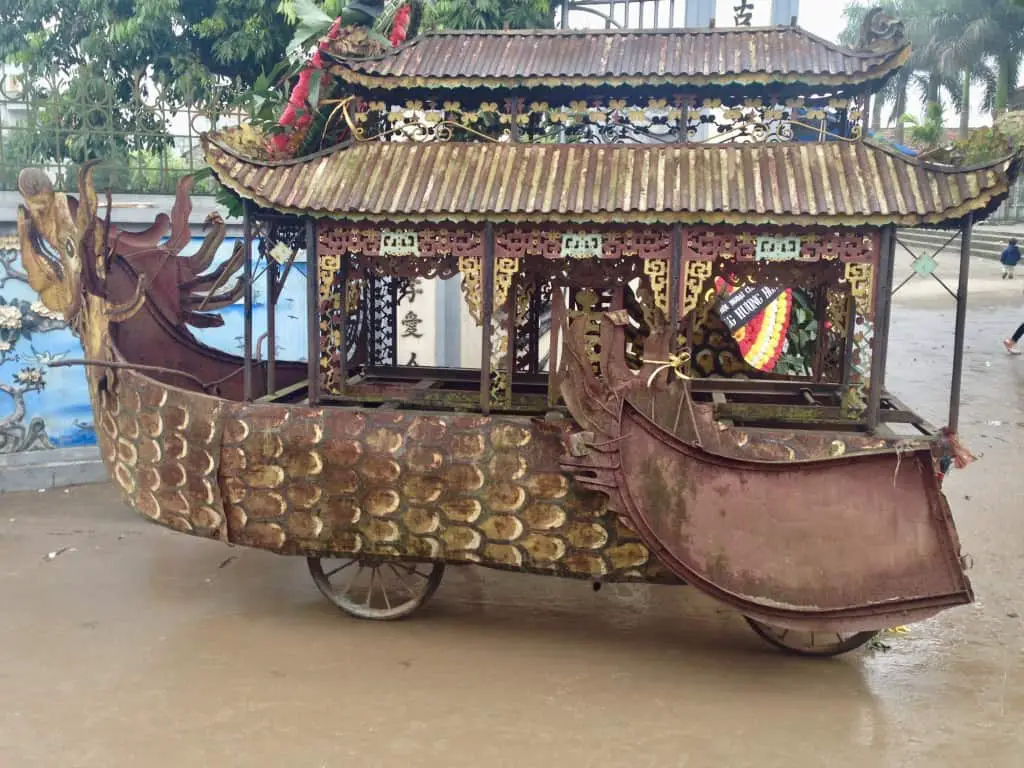
One response to “Vietnamese Genealogy – Searching For Your Vietnamese Family Tree”
After reading your article, it reminded me of some things about gate io that I studied before. The content is similar to yours, but your thinking is very special, which gave me a different idea. Thank you. But I still have some questions I want to ask you, I will always pay attention. Thanks.